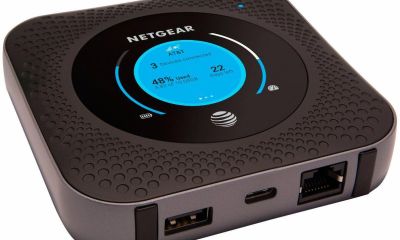Chromebooks
Chromebooks are similar to laptops with Google’s Chrome operating system. They are most useful when connected to the internet and logged in to a Google account.
Chromebooks may be checked out for three weeks. Any DeKalb County Public Library cardholder age 18 and older is able to check one out. This program is currently available at these libraries.
To check out a Chromebook:
- Click here or call a participating branch to check availability, and schedule a time to check out.
- Visit the branch.
- Read and complete the paperwork. Take the Chromebook.
Come into the branch to return the Chromebook:
- A Chromebook checks out for three weeks with up to three renewals based on availability. They must be returned or renewed at the service desk of the branch where it was checked out. Chromebooks cannot be returned in the bookdrop or to another branch.
- If not returned on the due date, the Chromebook will be deactivated and will no longer work until brought back to the branch and reinstated.
Chromebooks allow you to browse the internet, check email and use online productivity software, like Google’s GSuite or Microsoft 365. When using a library Chromebook, know that:
- You do not need to disinfect the Chromebook as staff are doing this. Disinfecting and cleaning the Chromebook may damage it.
- You need to create and sign in to your personal account to access online productivity software and save your work.
- You need to use a flash drive or be connected to the internet and signed in to your account to save any work. You cannot save anything to the Chromebook.
- You need to navigate using a touchpad, which takes the place of a mouse.
- To move the pointer, move your finger across the pad.
- To click, tap the lower part of the touchpad.
- To right click, tap the touchpad with two fingers.
- For more help, see this page.
- You can also use keyboard shortcuts to quickly do certain things. For a listing of these, see this page.
To learn more about Chromebooks:
- Google’s Chromebook OS and How to Chromebook
- Goodwill Community Foundation’s Chromebook Basics tutorial
Patrons may use the Chromebook and access the internet at their own discretion. Although many valuable sources of information are available via the internet, the Library can neither verify the accuracy nor control the content of material found. Furthermore, while using a library Chromebook, understand that:
- Failure to return the Chromebook and/or damage to it will result in a $75 charge.
- Reconfiguring the Chromebook is not allowed.
- Patrons create, use and store personal data, including all files, folders and media, at their own risk, and DeKalb County Public Library is not responsible for any loss.
- Use of the Chromebook for illegal purposes is expressly forbidden, in accordance with applicable legal statutes.
- Use of the Chromebook to access material that is obscene as defined under Georgia law (O.C.G.A. 16−12−80), child pornography as defined under federal or state law (18 U.S.C. 2256; O.C.G.A. 16−12−100), and material that is “harmful to minors” as defined under Georgia law (O.C.G.A. 16−12−102) is not allowed.
- DeKalb County Public Library is not responsible for any liability, damages or expenses resulting from use or misuse of a library Chromebook, connection of the Chromebook to other electronic devices or networks, or data loss.
- DeKalb County Public Library is not responsible for the breach or interception of confidential information resulting from the malicious activity of another internet user.
- The internet contains images and content that may be offensive or harmful to some. DeKalb County Public Library is released from all liabilities associated with the viewing, use or exposure to any images and content patrons may encounter while using the Chromebook online.
- Parents and/or guardians are strongly encouraged to monitor their minor children’s use of electronic resources, including electronic mail, and to establish guidelines consistent with personal and individual family values and boundaries.



